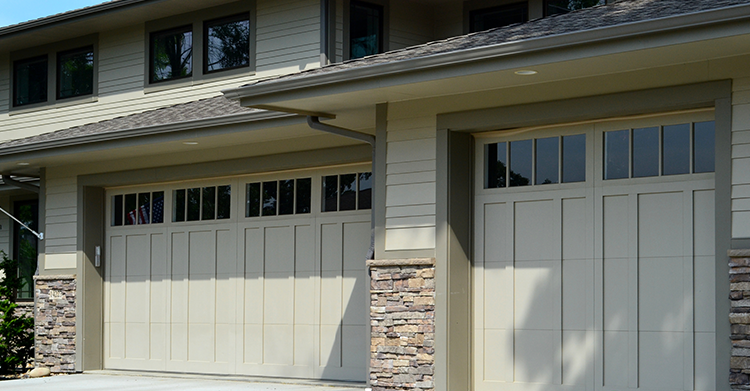With winter upon us, it’s hard not to notice the rise in your energy bill. Iowa’s cold temperatures, chilling winds, and snowy months can take a serious toll on your home—including your garage. While this may not be the ideal time of year to install a new garage door, it is a great time to research and prepare for when you do replace your existing system. When it comes to insulated garage doors, here’s why it really does make a difference in Iowa.
Insulation makes your garage door more durable.
Not all garage door materials are created equally, but one thing they could all use a little more of is support. An insulated garage door, regardless of the material, will be more durable than a similar model without insulation. Insulation is an added reinforcement that can help prevent and minimize denting or other damage to your garage door. For Iowa homeowners, that means extra protection against extreme weather conditions like hail, sleet, and wind.
Insulated garage doors reduce noise.
The weather outside is frightful, and you can hear it from inside the house! If you have an attached garage, it has a lot to do with what you hear indoors. A garage door without insulation will allow more sound to travel into your garage and on into your home than an insulated garage door. With high winds, ice, snow, and sleet on the way this winter, that can make a big difference. An insulated garage door can help reduce the noise of severe weather conditions that threaten to dampen your holiday spirit.
Insulation prevents the transfer of heat through your garage door.
Perhaps most importantly, an insulated garage door makes a huge difference when it comes to the transferal of heat. There are two primary ratings that reflect a garage door’s energy efficiency: R-value and U-factor (or value). Here’s what you need to know about these ratings:
- R-value and U-factor are both measures of heat transferal.
- A higher R-value means less heat can pass through the door.
- A lower U-factor means less heat can pass through the door.
- U-factor always reflects heat transferal through the entire door assembly.
- Different manufacturers measure R-factor differently, which can make R-value comparisons difficult and sometimes misleading.
- R-values range from R-8 to R-32.
- U-factors range from 0 to 1.
While an insulated door won’t keep your garage toasty warm (unless, of course, you heat it), it will reduce the weather’s impact on the temperature of your garage. That means everything in your garage will have extra protection from winter’s bitter cold as well as summer’s sweltering heat.
As you prepare to purchase an insulated garage door or add insulation to your existing door, consider these additional factors that can influence the energy efficiency of your door:
- Quality of your garage door hardware
- The presence or absence of windows
- The condition of your weather stripping
To get the most out of your insulated garage door, you’ll need to carefully choose and maintain these other garage door features.
If you need a new insulated garage door, contact the professionals at WD Door. We carry a wide selection of the industry’s best garage doors. We’ll work with you to find a style, material, and insulation rating that meets your specific needs. For decades, WD Door has served as Iowa’s experts on garage doors. Get your quote from WD Door today!

